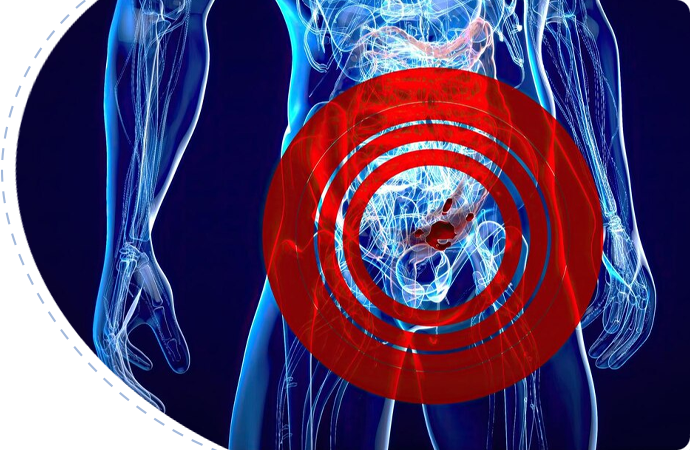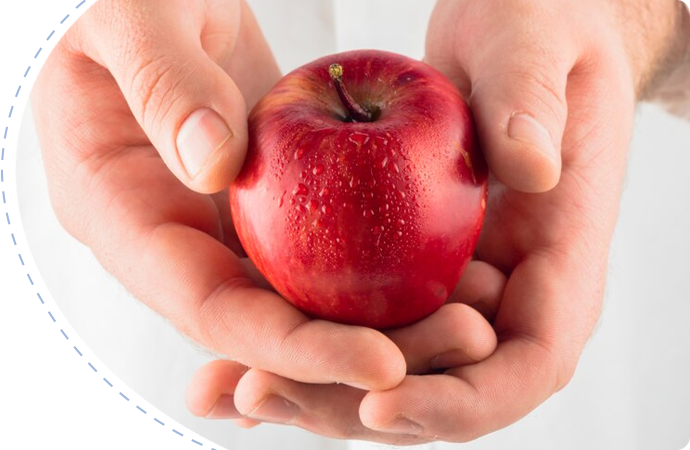
Important tips for colorectal health in Bangladesh
Colorectal health refers to the health of your large intestine (colon) and rectum, which form part of your digestive system. Now we discuss important tips for colorectal health in Bangladesh. Because, it is a significant aspect of overall wellness, particularly in Bangladesh where lifestyle factors and dietary habits may influence the risk of colorectal diseases.
Understanding the importance of preventive measures and early detection is paramount. Here, we delve into essential tips customized to promote colorectal health in Bangladesh's unique cultural and dietary landscape.

How to keep your colon healthy and clean?
Maintaining a healthy and clean colon involves a combination of lifestyle choices, dietary habits, and regular medical check-ups. Here are some tips to help keep your colon healthy:
- High-fiber diet: Eat fruits, veggies, whole grains, and legumes regularly.
- Stay hydrated: Drink 8 glasses of water daily for smooth digestion.
- Limit red/processed meats: Choose chicken and fish.
- Exercise regularly: Aim for 30 minutes of moderate activity most days.
- Don't smoke: Quitting reduces colorectal cancer risk.
- Manage stress: Exercise, meditation, or hobbies help.
- Get enough sleep: Aim for 7-9 hours nightly.
- Listen to your body: Seek help for persistent digestive issues.
Improve your colon health naturally
A notable discussion of this blog ‘Important tips for colorectal health in Bangladesh’ Is `Improve your colon health naturally’. Cause, maintaining good colon health is important for overall well-being, there are many natural ways to keep it functioning optimally.
- Fruits and vegetables: Aim for a rainbow of colors on your plate. Each color group offers a unique blend of nutrients and antioxidants that benefit your colon.
- Cruciferous vegetables: Broccoli, cauliflower, Brussels sprouts, and kale are rich in fiber and sulforaphane, a compound that may help protect against colon cancer.
- Berries: Berries are packed with fiber and antioxidants that can reduce inflammation and promote colon health.
- Healthy fats: Include healthy fats from sources like olive oil, avocados, and nuts in your diet. These fats can help with nutrient absorption and keep you feeling full.
- Probiotic power: Probiotics are live bacteria that benefit your gut health. Include probiotic-rich foods like yogurt in your diet. Consider probiotic supplements after consulting your doctor.

Apples and colon health
Apples are a nutritious fruit that can contribute to colon health in several ways. They are rich in dietary fiber, particularly pectin, which promotes regular bowel movements and helps prevent constipation. Additionally, apples contain antioxidants and flavonoids, which may have anti-inflammatory properties and contribute to overall gut health. Some studies suggest that regular consumption of apples may reduce the risk of colorectal cancer. Including apples as part of a balanced diet can support colon health and contribute to overall well-being.
Avoid worst foods for colon health
'Important tips for colorectal health in Bangladesh’ a mentionable subject of discussion in this blog is to avoid the worst foods for colon health. The worst foods for colon health are typically those that are high in unhealthy fats, refined sugars, and processed ingredients. Here are some examples:
- Processed meats: Such as bacon, sausage, and deli meats contain high levels of saturated fats and preservatives, which have been linked to an increased risk of colorectal cancer.
- Red meats: While lean cuts of red meat can be part of a balanced diet, excessive consumption, especially of processed or charred meats, has been associated with a higher risk of colon cancer.
- Fried foods: High-fat and fried foods can be difficult to digest and may contribute to inflammation in the colon.
- Sugary beverages: Drinks like soda and sweetened juices provide little nutritional value and can lead to weight gain, which is a risk factor for colon cancer.
- Refined grains: White bread, white rice, and other refined grains lack fiber and important nutrients, which are essential for digestive health.
- Highly processed foods: Packaged snacks, fast food, and other highly processed foods often contain artificial ingredients, additives, and preservatives that can disrupt the balance of healthy bacteria in the gut.
Signs of a healthy colon
A completely healthy colon won't necessarily announce itself, but there are some telltale signs that things are functioning well down there:
- Regular bowel movements: This is a big one. While the exact frequency can vary from person to person, having bowel movements anywhere from three times a day to three times a week is generally considered healthy.
- Easy passage: Your bowel movements should be easy to pass without straining. Straining can put pressure on your colon and lead to hemorrhoids. Ideally, your stool should be soft but formed like a ripened banana and elimination should be comfortable.
- Stool appearance: Healthy stool is typically brown. While occasional variations can occur, persistent changes in stool color, like red or black stools, could indicate bleeding and warrant a doctor's visit. The shape of your stool should also be somewhat sausage-like. Very narrow stools or stools that are consistently lumpy might suggest problems.
- Overall digestive comfort: A healthy colon generally means minimal bloating, gas, or abdominal pain. If you're experiencing frequent discomfort, it could be a sign of something amiss.

Are you looking for the best colorectal surgeon?
Are you looking for an experienced colorectal surgeon specialist for face-to-face discussion and getting the best suggestions? Visit Dr. Tariq Akhtar Khan immediately. He has over 15 years of experience in the piles treatment field. Also, he is an expert Colorectal and Laparoscopic Surgeon.
Common questions and answers
Consuming a diet rich in fruits, vegetables, whole grains, and lean proteins while limiting processed foods, red meat, and sugary beverages can promote colorectal health.
Screening guidelines typically recommend regular colonoscopies starting at age 45 for those at average risk. However, individuals with a family history or other risk factors may need to start screening earlier.
Regular exercise, maintaining a healthy weight, avoiding smoking, limiting alcohol intake, and managing stress can all contribute to reducing the risk of colorectal cancer.
Some traditional practices in Bangladesh, such as consuming fiber-rich foods like lentils, vegetables, and fruits, may support colorectal health. However, it's essential to consult with a healthcare professional for guidance on effective prevention and treatment strategies.
Symptoms such as changes in bowel habits, blood in the stool, abdominal pain or cramping, unexplained weight loss, and persistent fatigue should prompt individuals to seek medical attention for further evaluation and diagnosis.




